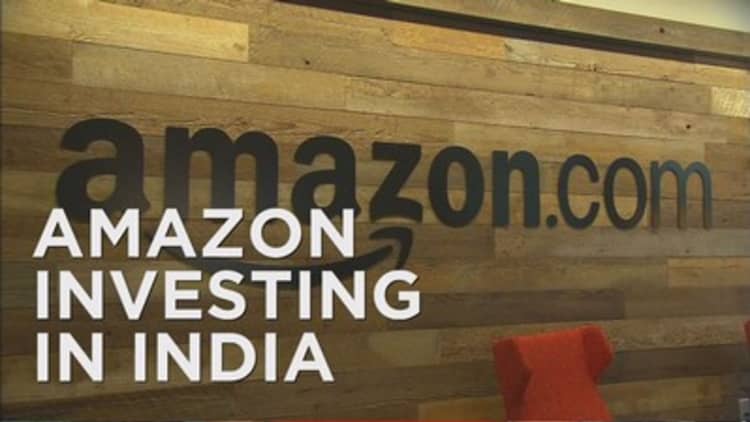Amazon is widely recognized for its disruption of the office supplies and bookstore categories. Now, it's ready to add apparel retailers to its hit list.
According to a report released by Cowen and Company on Monday, Amazon's U.S. apparel and accessories business will strip Macy's of its title as the country's top apparel retailer by 2017.
If realized, that distinction would come on the heels of the online retailer quietly ramping up its partnerships with fashion brands including Gucci, Kate Spade and BCBG, to offer 343,000 items from leading brands that sell directly or on a first-party basis.
To compare, Macy's has 85,000 apparel items on its website, whereas Wal-Mart has 292,000, Nordstrom 85,000 and Target 35,000.

Cowen, which simultaneously upgraded Amazon from "market perform" to "outperform," forecast in its research note that Amazon's gross merchandise value in apparel and accessories will grow from an anticipated $16 billion in 2015 to more than $27 billion in 2017.
Read MorePrime Day: Win for AMZN, but what about shoppers?
That figure would easily best Macy's anticipated sales of $24.69 billion in those categories in 2017, which would represent only a slight uptick from Cowen's forecast for nearly $24 billion this year.
By its estimates, Amazon would grow from about 3 percent share of total U.S. retail sales in 2014 (excluding autos and gas) to 6.9 percent by 2018, Cowen said.
"Amazon's growth in clothing and accessories introduces additional competition for traditional retailers but presents a new opportunity of distribution for global brands that can effectively segment product between their own stores/website, the traditional wholesale partners and Amazon," Cowen's analysts wrote.
For years, Amazon struggled to gain traction with its fashion business, as retailers were hesitant to enter into partnerships with an online store known for its low prices. Aside from these worries about diluting their brands, Cowen said retailers have also voiced concerns about Amazon using data from their products to test pricing strategies or negotiate its own deals with manufacturers.
Read MoreAmazon Prime Day: It's not all about Wal-Mart
Aside from expanding its vendor base, Amazon has jazzed up its fashion presence by sponsoring the inaugural New York Fashion Week men's shows this month, and opening a photo studio to better feature its products.
"Given how rapidly Amazon's fashion business has grown in size, we believe it is becoming increasingly more difficult for brands to ignore," the analysts wrote.

Along with more competition for department stores like Macy's, which have already posted anemic growth over the past few years, the expansion of Amazon's fashion business could cause off-price retailers like T.J. Maxx to lose some negotiating power with their vendors, Cowen said.
Read MoreRetail sales forecasts: Something doesn't add up
The firm, which raised its price target from $435 to $565, was one of two to upgrade Amazon on Monday. Wedbush also upped its rating on the company from "neutral" to "outperform," lifting its target price from $435 to $575. Among its reasons, Wedbush cited greater-than-expected sales traction from Prime Day, and faster-than-expected growth in Prime.
Wedbush estimates that Prime Day accounted for about $1.2 billion in incremental sales in a single day.
Shares of Amazon were up more than 1 percent, to $488.79, midday Monday. The company will announce its second-quarter results Thursday, two days after the launch of rival subscription site Jet.com.


